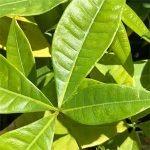The great thing about making conpost is that its free, and is the best way to add organic matter to the soil. Compost improves soil health and therefore plant health.
Making compost is also great for the environment, it reduces landfill for a start.
Composting leaves and grass is a great way of returning organic matter and nutrition to the soil. By making a compost pile or compost bin or by using a compost tumbler it is possible to recycle much garden and household waste.
Indoor compost bins and compost buckets are now available and these can be suitable for smaller spaces. We provide a guide on what to compost and how to compost.
How to Make Compost.
There are three basic ways to make compost. Compost heaps. Compost Bins and Rotating Compost tumblers. So what are the benefits of each method of composting?
Compost heaps involve simply placing all of the material to be composted in a heap and let time take its course.
Compost Bins are a little like compost heaps but with a few refinements. By constructing a bin compost is contained and will generate more heat, this hastens the composting process as well as making things look a little neater. Many gardeners have a number of bins so that they can turn the compost from one bin to another and also have compost at different stages of decomposition. New style bins with aerobic inserts are now on the market, it is believed that these bins hasten the process.
Compost tumblers are probably the fasted and cleanest way to turn garden waste into compost. By rotating the sealed bin the composting process is much quicker. Compost tumblers are also sealed, so vermin do not become a problem.
What can you Compost?
- Kitchen scraps such as vegetable peelings and fruit scraps (not onions or citrus)
- Leaves.
- Grass or lawn clippings.
- Chipped or mulched branches.
- Tea leaves, tea bags and Coffee grounds.
- Egg shells.
- Vacuum cleaner dust.
What can’t you compost?
- Meat and dairy products
- Dog droppings, or droppings of meat eating animals
- Bones
- Large limbs or branches
It is also worth looking at WORM FARMS as a means of recycling garden and household waste.
Composting is one of the basic activities in any well maintained garden. Composting systems and techniques vary greatly, but all composting systems have one aim, to convert organic waste into rich compost designed to replenish and improve soil structure.
How to make GOOD compost
Although most materials will eventually rot down, we are trying to quickly and efficiently make ‘good compost’ rather than an anaerobic sludge, so what are the secrets to making good compost?
The right mix of materials and air. GREENS and BROWNS.
You need a balance of carbon and nitrogen or green and brown materials as gardeners like to call them. You also need air to promote aerobic activity. This can be achieved by turning the compost heap, or layering with materials that do not compact down quickly. Moisture is another factor, to much and the compost becomes anaerobic, to little and it dries out.
Greens can include:
Indoor waste materials such as. Vegetable scraps, Coffee grounds and Teas Leaves from indoors. Stay away from bread, hair, animal fur, they can be composted but can also cause problems
And or course from outdoors, grass clippings, leaves and waste from the vegetable garden, livestock manure
Browns include:
Paper, Ash from wood burning fires only and from outdoors autumn leaves, small sticks (larger ones take to long to break down so treat them separately, other waste from vegetable gardens such as corn stalks.
What about compost additives that are said to speed up the process ?
We recently looked at these and found that the main ingredient of so called ‘compost additives’ was garden lime, and its a lot cheaper to buy a bag of lime than it is to buy the so called compost accelerators. This may not be true of all additives, but it certainly is of many.
Egg Shells in Compost
We have been asked a few times about adding eggshells to compost and worm farms, is it safe, do they decompose, are they good for the compost.
Well a few different opinions exist on this, some people suggest that eggshells can attract rats and mice, and although this may be true, so can kitchen waste such as vegetable peelings. A few claim that unwashed eggshells can cause Salmonella to spread to your compost bin and garden, unlikely, however you can wash them first, or just put them on a tray in the oven to kill the bacteria.
Eggshells can go into compost crushed up or in bigger pieces, crushed up looks better and will help with decomposition, bigger pieces will help with aeration.
Eggshells are a good source of calcium for compost, however they can also be dried in the oven, crushed and used as a barrier to slugs and snail, they hate crawling over eggshell grit.
SO in summary eggshells are another addition to the compost pile, heap or bin, they are a source of calcium and if put in whole do not break down quickly, however they do help aerate and promote aerobic activity the compost, worms love to make a ‘home’ in eggshells.
Some gardeners let their eggshells dry and then crush them in a bucket .
Happy composting.

